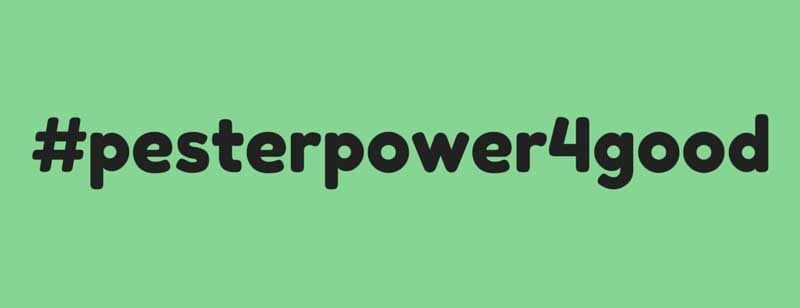Scale of children’s influence on parents’ charitable giving revealed
Research by nfpSynergy reveals that a quarter of parents give to charity because their children ask them to. The same proportion are also persuaded to fundraise for charity by their children.
NfpSynergy surveyed 240 parents in Britain. It found that:
• 23% were asked by their children to give to good causes and did so as a result
• 23% were asked by their children to take part in a fundraising event
• 9% of parents had become volunteers after their children suggested it.
NfpSynergy also asked parents about their children’s impact on their lifestyle. It found that, following their children’s suggestion:
* 22% of parents had “become more environmentally friendly”
• 18% had stopped smoking, eating more healthily or taken more exercise.
What the children said
NfpSynergy also asked 550 11-16 year olds whether they had asked their parents to more active in supporting charities and whether they had taken action as a result.
• 60% said they had talked their parents into donating
• 38% said their parents had fundraised
• 24% thought their parents had become volunteers because they’d asked them.
NfpSynergy notes that when the survey of parents is broken down to those with 11-16 year old children, the actual numbers are 27% for donating, 25% for fundraising and 9% for volunteering.
A good side of pester power?
Jo Fischl, Senior Researcher at nfpSynergy, said:
Advertisement
“‘Pester power’ is often seen as a negative aspect of modern society, but this research shows that children and teenagers can and do influence their parents in positive ways, whether it be persuading them to recycle, get active or even get involved in supporting charities.
“Charities simply have to start thinking about children and teenagers not just as the supporters of the future, but as an important part of their supporter base today. The direct impact that young people have on charitable behaviour in adults provides an exciting opportunity for whichever charities can harness this power.”
You can download a set of slides for this research from nfpSynergy. A free registration is required.
[message_box title=”About the research” color=”blue”]
The research was carried out via nfpSynergy’s Charity Awareness Monitor, which regularly surveys a representative sample of 1,000 16+ year olds throughout mainland Britain on charity-related questions. Data was used from the October 2014 wave.
Data was only used from those with children under 18 living at home. Data was also used from the November 2014 wave of the Youth Engagement Monitor, which surveys 550 children aged 11-16 annually.[/message_box]




